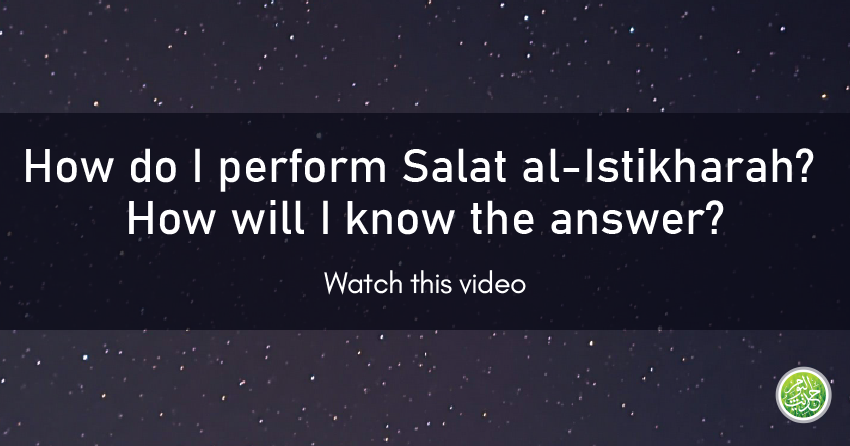Help Your Kids Confront ‘The-P-Word’: Pornography

“Hina?” The voice on the other end of the line was ragged; it was obvious the caller had been crying.
I felt panic rise in my chest. “What’s wrong? What’s happened?”
Pause. Deep breath. And then: “It came into my house last night.”
And there it was. Without any need for elaboration, without any more details, I knew exactly what “It” was referring to.
Pornography.
If I use the word “epidemic” to describe what is happening with pornography and our children, I do not think I would be overstating the matter. It is no longer a matter of “if” but a matter of “when”…at some point or the other, we will all be confronted with this cancer that is currently spreading its tentacles into every home in the world. Therefore, it behooves us to be prepared and to have our preventions and our treatments in place, insha’Allah (God willing).
According to the latest statistics on familysafemedia.com:
- 4.2 million pornographic websites exist today
- 42.7% of internet users view porn
- 34% of internet users receive unwanted exposure to sexual material
- 72 million worldwide viewers visit pornographic websites on a monthly basis
The facts that all parents need to know:
- the average age of first internet exposure to pornography is 11 years old
- 80% of 15- to 17-year-olds are having multiple hard-core porn exposures
- 90% of 8- to 16-year-olds have viewed porn online (most while doing homework)
- 26 children’s character names are linked to thousands of porn links (including Pokemon and Action Man)
It is my hope that parents will use this article as a family read-aloud, a springboard from which to jumpstart a more in-depth conversation about a crisis that is affecting so many youngsters and adults alike.
1.) Treat the internet like a loaded weapon in the house.
How does one treat a loaded weapon? First, you make sure that children know that’s it there and you warn them of its inherent dangers. You teach them that they are never to touch it unless you are there to supervise them. You never ever leave kids alone with it. You don’t let them have easy access to it. You keep it under lock and key. All of these exact same rules apply to the internet as well.
We have two sons in high school and one son beginning middle school, alhamdulillah (praise be to God). The older two have flip phones for calling and texting — no smart phones with internet access. None of them are allowed to use the internet in the privacy of their bedrooms. All web searches are conducted in a public space in our home where anyone passing by can see what they’re looking at. Whenever there is silence for an extraordinarily long amount of time, either their father or I will glance over their shoulders to see what’s going on or we will simply point-blank ask them what exactly they’re doing. We know the passwords to their email accounts. These understandings have been in place since Day One, so our attitude doesn’t come across as one of mistrust; it is simply the way things are done in our home if one is a minor who wants the privilege of using the internet.
I know of other parents who require that their children “check in” their smart phones with them at night. The phones are charged in the parents’ bedrooms after 9 pm and no one is allowed to email or text after that time. Some parents change the wifi password daily and the kids must request the new password whenever they need to use the internet. The parents’ laptops are kept under similar stringent security controls. Some parents check in with adults — even close relatives — before letting their children go over to play or spend the night (just like they would with any loaded weapons in the house): “Will the children have access to any computers? What kind of controls do you have on the kids’ internet usage?”
This first point I’ve mentioned is all about prevention, about trying to establish a healthy rhythm and routine around the internet before ever even letting your kids get on the information highway. The rest of the points in this article are all about preparation.
2.) If your kids are using the internet at all, you should have talked to them about pornography yesterday.
Muslims have always been known for their sense of modesty. Countless times I have witnessed parents wince and then — with bulging eyes — hold urgent “shush” fingers to their lips when they hear me start to caution about the dangers of pornography in front of their children — children who are often clutching their own computers and smart phones and iPods after having asked me for my wifi password within minutes of entering my home. Modesty is a noble trait and one that needs to be honored, but when it comes to discussing the dangers of the internet, any apprehensions about talking about what’s really happening “out there” need to be thrown out the window.
Last year, a mother who attended one of my talks at a local mosque heard me urge parents to talk to their kids about pornography as soon as possible. A few months later, she showed up at one of my parenting talks at a private Islamic school. When it was time to get feedback from the audience, she raised her hand and told the other moms and dads, “When I first heard Sister Hina say that we needed to talk to our kids about pornography, I knew I had to do it, but I didn’t know how. I was scared to death. Despite knowing that this was something I had to do, it still took me over a month to summon up the courage to actually speak with my son. When I finally did, I couldn’t believe the look of relief on his face! It turned out that he already knew about pornography and had even seen some images and didn’t know what to make of them. He had so many questions, but he didn’t know whom to ask. I’m so grateful that I finally talked to him about pornography…I only wish I had done it sooner.”
Some parents worry that talking to kids about pornography will make them curious about something they had been blissfully oblivious about and they will then want to further seek it out on their own. I recently heard of a child who looked up “pornography” on the internet after hearing the word mentioned as a social ill in a khutbah (Friday sermon). I learned of another child who went to a summer camp where another boy asked him if he knew what porn was; the Muslim boy was too embarrassed to admit that he had never heard the word before and came home and typed up “p-a-r-m” on the computer’s search engine…and guess what? Porn came up. I know of another little girl who was searching for her favorite toy (“American Girl”) as a potential Eid gift and pornographic images of the “ideal” American girl flooded her family’s computer screen instead. One little boy had to do a science report on dogs, and when he attempted to research canines, images of bestiality popped up on his mother’s laptop.
If you don’t talk to your kids about porn, I can guarantee you that someone else will. It is only a matter of time. You simply must get to them first.
There isn’t any need to go into graphic details about what makes up pornography…what’s important is that kids know WHAT it is and — perhaps even more importantly — that they know that YOU know what it is. If a child accidentally stumbles onto pornography, previously completely clueless about its existence, they may assume that — like them — their parents also must have no idea about this secret world either. Believe it or not, the children may even worry that they need to be the ones to protect the adults from it! They may also fret that parents will overreact or will mistrust them or will even accuse them of having deliberately searched out “dirty images”. But if you’ve already talked to your kids about this heinous industry and its terrible evils (and its inevitability), they will instead be able to tell you, “It happened, Mom/Dad. You had warned me that pictures of naked people would suddenly pop up on my computer one day and today it actually happened. But — don’t worry — I knew exactly what to do. I followed our drill.”
3.) Just like with any emergency, have a safety drill in place for when (not if) kids encounter pornography.
Students are taught fire drills and earthquake drills and intruder drills in school and at work. Just like those important precautions, we too need to have a safety drill in place for when we encounter pornography in our lives. Pornography can be just as destructive to one’s livelihood and happiness as any other natural or manmade disaster. Zeeshan and I have taught our sons and nieces and nephews a simple three step drill:
First, say, “Audhu billahi minashaitanir rajeem” (I seek refuge in Allah from the accursed Satan).
Second, turn off the computer or laptop — close the cover, unplug, power down, whatever it takes to immediately remove the pornographic images from your sight.
Third, get up at once and go tell an adult.
We have drilled these three instructions into the children over and over. We teach them that there is real power in seeking refuge in God and remind them that He hears all our prayers; there is no success without His Help. But along with praying to God for help, we need to take real, practical steps to ensuring our own success as well — and the next step after dua (prayer) is to physically turn away from that which is displeasing to God. Finally, we remind them that they need allies and mentors to help them succeed through the various challenges in life, so it is important to involve trusted adults in anything that could be harmful to our physical, emotional, and spiritual development.
Our middle son lives 400 miles away from us with my brother. I am fortunate in that my brother and I have the same rules when it comes to internet use in our homes. Despite being on the same page, however, my brother told me, “You know, Hina, I can watch over Ameen all I want. We can have all the rules and restrictions in place. But there are many times when I have to go to bed and he often still has homework that he is doing until the wee hours of the night. The truth is that at some point HE needs to be the one who is vigilant; he needs to know what to do when he encounters pornography.”
Sure enough, one night Ameen was working on an assignment when a pornographic image popped up on his screen. Thank God he remembered (and followed) the drill and promptly uttered “audhu billahi minashaitanir rajeem”, turned off the computer, and immediately went to tell his uncle what had happened. My brother told him not to touch the computer again and in the coming days got someone to clean up the virus that had infected the laptop. If we hadn’t had that drill in place, I shudder to imagine what might have happened — the confusion, the curiosity, the second glance, the clicking, and then — WHOOSH — he’s fallen down a dark, cavernous, sick hole from which he could have spent years trying to crawl out of. May Allah protect all of our children. Aameen (amen).
4.) It is important to explain pornography from a spiritual perspective as well.
A person can have instituted all the rules and limits in the world, but if kids don’t understand Whom they are ultimately trying to please, there will never be any true buy-in on their part. “Remember, we will not always be around to instruct you on what to do and what not to do; your teachers will not always be monitoring you and your actions,” we tell the kids. “But Allah IS always with you. He sees and hears all. He is the One Who never sleeps. You cannot hide from Him. And Allah especially loves the one who avoids sin in the privacy of his own home simply out of his fear of displeasing God. That’s called taqwa (God-consciousness). It’s when you’re alone that your true sincerity and belief in God is tested. Will you pass the test? Will you have taqwa?”
It’s not necessary that the “God sees you” warning will be enough of a deterrent for many teenagers, but it is still our job to make sure that our kids are taught to look beyond this realm and to ponder otherworldly consequences for their actions. We have also told our kids that “the first inadvertent glance is a freebie”; they will not be held accountable for anything they did not intentionally mean to look at, but it is the second glance when the angels do in fact start recording their actions. “Be mindful of your intentions” is the mantra we repeat.
“Anything Allah has prohibited for us has only been prohibited for our own benefit,” we also teach our sons. “There is a mercy and a protection in any instruction that tells us to stay away from something, even if we don’t understand the wisdom in the moment. Our job is just to say, ‘I hear and I obey.’”
The other point we make with our boys — and other parents make with their kids — is to admit that it is possible for some people to watch pornography once or twice or even multiple times and then decide that they are done with it and don’t ever want to return to it again. But we emphasize the highly addictive nature of pornography as well; there is a reason that the rush one gets from watching porn has been compared to the chemical high one gets from cocaine and heroin. “You have no idea what camp you fall into,” I tell our three boys. “You could be someone who sees porn once or a few times and then decides, ‘No more for me’…and then actually sticks with that decision. Or you could be someone who watches it once and — BOOM — it’s over for you. You are addicted for the rest of your life and later you cannot have a normal, healthy relationship with your wife and you need therapy forever. There’s NO WAY of knowing how you’ll react to porn when you first see it…and that is the point. That is why Allah has told us to just completely stay away from that which is haraam (prohibited). Like alcohol, don’t even taste a little bit of it just once. It’s totally off-limits now and forever. And thank God for that.”
We remind our children of the sufi teaching that there are seven inroads to the heart — the eyes, the ears, the mouth, the hands, the stomach, the genitalia, and the feet. We compare the heart to a castle that needs to be protected by a fortress wall so that no enemies can attack it from any of the seven entrances. “Only people with pure hearts will enter Jannah (Paradise),” we caution our kids. “We are all born with a tiny black speck on our hearts. Every time I allow a sin from one of those seven avenues to enter my heart, that black spot continues to grow until eventually the whole heart is rotting. The only thing that removes the (spiritual) blackness and polishes the heart is tawba (repentance) and dhikr (remembrance of God). Life is made up of constantly messing up and of constantly asking for forgiveness and then resolving to do better. You don’t want to be consumed by a disease or an addiction that takes over your life, God forbid. Watching porn is not worth the risk; the price is too high.”
I have also taught my sons and my other students that Muslims are supposed to be here to leave the world a better place. I inform them about the destructive elements behind the pornography industry — the criminal exploitation of women and children, the spread of sexually transmitted diseases, the harmful effects of porn on marriage, the plummeting low self-esteem of men and women who cannot ever measure up to what they’re watching on their screens. “Pornography is a dark, dark world…and Muslims are here to bring noor (light).”
5.) There is no utopia. There is no safe community. There is nowhere to escape.
Pornography is here to stay and it is up to us to figure out how to deal with it. I had a young mother recently tell me, “Thank God we live in (insert name of a Muslim country). The government there has tight controls over what is and isn’t allowed to be seen.” It broke my heart to burst her bubble, but I knew I was doing her a favor by removing her blinders. Even my children are aware of the fact that the top countries that download the most porn are ones that claim to be Islamic.
I have heard more than one parent come up with elaborate plans to escape the country, to get away to “somewhere safe” where the lifestyle is more provincial, more simple, more “disconnected”, preferably where the people are pious and the culture is conservative. Suffice it to say that I have been told first-hand about villages that don’t have electricity and running water but that still have the ability to access pornography on the few phones that manage to exist there.
After my presentation at a mosque, I was overwhelmed by the number of mothers and wives who wanted to share their own heartbreaking tales of woe. I heard about young hifz (Quran memorization) students who stumbled onto porn while reviewing Quran on their iPods, becoming hopelessly addicted over the course of years before being discovered by parents. I was told about young children who encountered porn in their trusted grandparents’ homes while looking up popular cartoon characters (a famous porn star has professionally named herself after an innocuous Disney character). My own son told me about a classmate who was openly watching porn on the computer at the local public library — other teens were laughing at him behind his back, but he was completely oblivious to them. (Ironically, the librarians were hushing the boys for being loud and even threatened to kick them out if they didn’t quiet down, but these same adults were helpless to stop anyone from watching porn on their premises due to the fact that it would be seen as “censoring public information”.)
“I did everything right,” one mom wept to me. “I kept a close eye on what they watched. I didn’t allow them to use the internet unsupervised. No one but my husband and I know the password on our wifi. I let others know what our family rules were. The ONLY thing I didn’t do was talk to my kids about it because I wanted them to hold onto their innocence a little while longer. I didn’t tell them what pornography was and how they should react if they ever come across it. So when it happened, they just didn’t have the tools to deal with it.”
There is nowhere to go, folks. There is no immunity. We have to face the monster head-on.
The first step to facing the monster is being informed; the second is being vigilant. I was really impressed recently when I met a husband and wife team, both of whom were born and raised in a small town in a third-world Muslim country. They have been living in the US for only a little over a decade, yet they are two of the most culturally aware and attentive parents I have ever met. They know all the statistics and the studies. They have tight controls on what their children are watching and when. They talk to their kids about everything without lecturing or nagging. These are parents who are not clueless in the least.
Only a week later I spent time with a young father who — along with his wife — was born and raised in America. Both of these parents work in the tech industry and have shared many articles with me on how best to raise kids in this day and age. After meeting their young daughter, however, I couldn’t help but feel an acute sense of foreboding. This sweet child took selfies constantly in my presence. She seemed unable to function without her smart phone permanently in her hand. Within minutes of entering my home, she was pestering me for my wifi code, despite my repeated attempts to rebuff her. Through talking to her, I soon found out that she had more than one social media account…unbeknownst to the adults in her life. For now, it seems that she is still innocent and unharmed, alhamdulillah, but it feels like this little girl is playing with fire…and her parents are the ones handing her the matches. The difference between both families is that one set of parents is informed and vigilant whereas the other set of parents is simply informed. It is imperative that all parents act on what they have learned.
****
As a personal confession, I must admit that it has been extraordinarily difficult to write this piece — it is very, very important to me that no one despairs after reading my words. The point is not to dishearten anyone but simply to wake people up. In the course of researching and writing this article, I have had to walk away more than once; there have been many times when I have just wanted to burst into tears. After proofreading my first draft, my 17-year-old son Shaan asked me, “Don’t you feel icky? This is so depressing.” Yes, but I knew I had to write on this topic back when he was a freshman who polled the boys in his class and found out that — except for one — every single student claimed to watch porn on a regular basis. One of them even told him, “I only use my computer for homework and porn. What else is there?” Shaan recently shared with me: “You talked to us about alcohol and sex-outside-of-marriage and hard drugs and peer pressure, but I’m finding the two things that a majority of kids — Muslims and non-Muslims — seem to be struggling with in high school are (1) weed and (2) pornography.” While I definitely feel the weight of this topic, I am continuing to pray that I only write that which is of benefit, insha’Allah.
If you are someone whose child has been exposed to pornography or whose child has become addicted to it, please do not despair. Allah has created no disease without also creating its cure. There is always hope…first and foremost with Allah. And there is treatment available with mental health experts who are professionally trained to help our kids heal. Please do not shame or blame your children, no matter their age or your expectations of them; they are victims of an evil industry that preys on the innocent and the weak. You need to be there now as their advocates and their support. Sometimes, despite our best efforts and our tightest precautions, our children will still end up engaging with pornography. It is not your fault. It is not your child’s fault. This is a test that — for whatever reason — Allah has meant for you and your family to be tried with; just like with any other test, you need prayer, patience, and perseverance (along with a plan for healing) to get through the toughest times.
If you are someone who is reasonably sure that your children have not yet encountered pornography, please do not become complacent. Remain hyper-vigilant always. And, God forbid, don’t ever be smug and do not judge or criticize other parents and their children who are struggling with a plague that is infecting so many. All of us need to pray for one another’s children. May Allah (subhana wa ta’ala) protect their eyes and ears and hearts and brains and guide them and keep them safe from all of the detrimental elements of this world. May they escape this dunya (world) unscathed. Aameen (amen).
*details of personal anecdotes have been changed in order preserve anonymity*
Written by Hina Khan-Mukhtar and brought to you by Seekers Guidance, more can be found here.
Since You’re Here… we have a small favour to ask.
In these extraordinary times, millions rely on HOTD for daily uplifting & inspiring content. Established since 2009 and with your kind support we’ve seen readers elevate their Imaan & strive for better on a daily basis. We’re committed to keeping our content freely available and open for all readers. Every contribution, however big or small, makes a difference and help us spread knowledge to millions daily
HOTD is something special, it’s a place where people can come to be inspired, to renew their faith, to learn and share knowledge, to fall in love with our faith and also our Prophet (peace and blessings be upon him and his family).
All content on HOTD is free. We believe what we do in this life builds for the next one and we work tirelessly with the aim to please Allah and inspire the global Muslim community as
well as providing information and inspiration for anyone interested in Islam. We simply cannot do this without your support and your support helps us continue our services.
If there were ever a time to join us, it is now. You can support HOTD and help sustain our future. Support Hadith of the Day and make a one-off donation or give regularly from as little as £10 a month Jazak’Allah Khayr – whatever you donate will come back to benefit you Insha’Allah as whatever is spent in the way of Allah is an investment in the future and the next life. Thank you.






